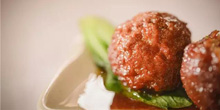Kunqu Opera hits a high note in Kunshan
(chinadaily.com.cn)
Updated: 2016-08-26
Renowned Kunqu theater performer, Yu Jiulin, opened his very own school and studio for the classic art form in Kunshan's Bacheng town on Aug 3.
"Promoting Kunqu Opera is my life's work," said Yu. "I want to build Kunqu Opera schools to develop the township into a talent base."
Kunqu, founded in Kunshan, is one of the oldest forms of Chinese musical drama and incorporates elements of music, song and dance. Yu's studio will be used for staging performances, fostering talent and hosting seminars relating to Kunqu Opera and other traditional arts. It will be a good place for Kunqu Opera masters to share thoughts and for new learners to absorb knowledge and hone in their performing skills, added Yu.
Originating from Bacheng literature scholar Gu Aying during the early Ming Dynasty (1368-1644), Kunqu Opera has developed and prospered for over 600 years.
More than four hundred years ago, Liang Chenyu, another local man of letters, blended classical poetry with a number of traditional folk tunes. The combination resulted in the birth of the classic piece "A Tale of Washing Gauze", which made the Kunqu Opera widely recognized across the nation and is honored as "the father of a hundred operas".
For the last 200 years, Kunqu Opera has struggled to find a direction for its further development. However, thanks to the clear and enchanting singing, memorable tunes and the efforts of Bacheng residents, Kunqu Opera regained vitality and was subsequently added to the world's intangible cultural list in 2001.
Since then, Kunqu Opera has experienced a great rise in popularity. Various promotional events and studios have been set up in Bacheng, forming a unique Kunqu Opera old street.
The local tourism authority has also emphasized integrating Kunqu Opera with other tourist resources, such as establishing historical exhibition halls, setting up Kunqu Opera themed hotels, and offering traditional Kunqu Opera shows with local delicacies, such as hairy crabs from the nearby Yangcheng Lake.
News
Four special holiday dishes to try in Kunshan
Like Christmas Day in the West, it is traditional in China to cook up an enormous feast on Chinese New Year, with dinner tables groaning under the weight of dozens of dishes.


